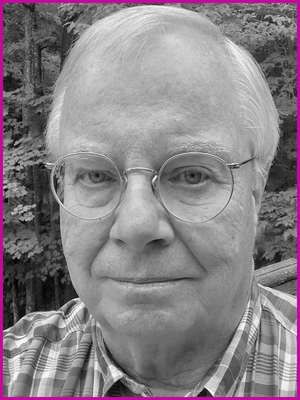Weirdly, though, the COVID-19 “new normal” is proving to be as malleable as a ball of wax. It means whatever the user wants it to mean in the moment. The new normal is an ephemeral narrative meant to serve its purpose in the moment as it allusively invites us to imagine what the old normal might have been, as if there ever really was such a thing. But it doesn’t add much to the discourse on its own. Narratives have a way of outlasting generations of “normals”, a fact we can discern by looking at the names bestowed on historical eras and at the stereotypes we associate with these. The Roaring Twenties was about flapper dresses and motorcars; the Atomic Age was all duck and cover and tract houses made of ticky-tacky; the Civil War Era was whatever your regional and political affiliations want it to be, with the added frisson of hundreds of thousands of dead, maimed, and missing people. Each of these narratives has become a kind of received truth that smooths the rough, often lethal edges of experience and memory. In each school the COVID-19 crisis has precipitated a whole raft of new practices, some adopted in the moment or planned by an administrative crash program. Many simply appeared one day, either to persist or to disappear the next. Who even remembers, or cares? So what? That was in April (or May or June or July or August). But in three or four years, assuming the virus has been tamed and some semblance of order or at least predictability restored to the world, what will your school’s COVID narrative be? What will keep the predominant memory, and thus the predominant narrative, from being anything but a recitation of “the year that wasn’t”, or worse, the failures, stop-gaps, complaints, and disappointments? We know that there have been plenty of the above, but there have also been good things, even great things, happening. Creative teachers have discovered ways to use familiar and even previously suspect tools to bring about new, good enough, and sometimes even better kinds of learning. Some students whose experience on brick-and-mortar campuses has been, er, humdrum have flourished in the online space. Old dogs have learned (and learned to enjoy doing) new tricks, and whole new ways and reasons to make curricular and pedagogical decisions have emerged. Given the added impetus of a wakening spirit of social justice and social and political relevancy, teachers have found themselves trying—even against the prevailing grain—to create learning experiences that have real significance in the lives of their students and their communities. Who is recording and tracking the positives? Has your school appointed or identified an archivist or recorder to document what has been happening—to write down what decisions were made or actions taken, how these came about and who drove them, and how they turned out, for better or for worse? Has your school been thinking about the questions it should be asking, even now, in order to learn the key lessons—their forms not yet fully framed—to create from our current pandemic hell a post-pandemic program that draws on the positive lessons learned and to inspire a narrative not of “we lost, we failed” but of “we learned, we handled this, we saw and seized these opportunities.” Of course there will and must be the larger, awful COVID-19 narrative of suffering, inequity, and loss, because these have been heavy and universal and will properly drive the story as our decade’s parallel to the tragic plagues of the past. I truly and deeply hope that at each school someone has been paying attention and writing things down so that affirming lessons will not be lost in the fog of this crisis. The annals of the COVID era at St. Basalt’s School might yet be sifted and analyzed to help design and sustain a whole new way of thinking about how it educates kids and helps teachers build the capacities they need to do this well. If you haven’t got this archivist, this on-campus Venerable Bede at your school, now’s the time to designate one. Maybe it’s a compulsive diarist who has been tracking these things on their own through the window of their own experience, or maybe it’s a diligent staffer or faculty member with a good memory and a belief in the better purposes of history. We’re in a dizzying cycle of change, unasked for and generally unappreciated, and we can’t say how or when it will end. But tracking the experience as we live it and then learning from the process can help us make the best of it, to create a new normal for 2025 that isn’t just a rush to fill the vacuum left by 2020 with the same old stuff. If each school can articulate a COVID narrative that is hopeful and future-focused and not just a litany of recrimination and regret, what lies ahead will feel and work a whole lot better for all of us. (And thanks to the late Pliny H. Hayes, my eighth-grade Latin teacher! It is a joy to remember those days!) Want to dive deeper into the topic? Dr. Damian Bebell, Assistant Research Professor at Lynch School of Education; Boston College, (and facilitator of our upcoming course, Assessing and Adjusting Your School's Hybrid Learning: Fidelity to Implementation) joined our August 26, 2020, Academic Leaders Webinar on evaluating fidelity to mission. Dr. Bebell shared his insights on research into how schools live their missions in their programs. Damian's slides can be found here.
0 Comments
Leave a Reply. |
Don't miss our weekly blog posts by joining our newsletter mailing list below:AuthorsBrad Rathgeber (he/him/his) Archives
July 2024
Categories |


 RSS Feed
RSS Feed